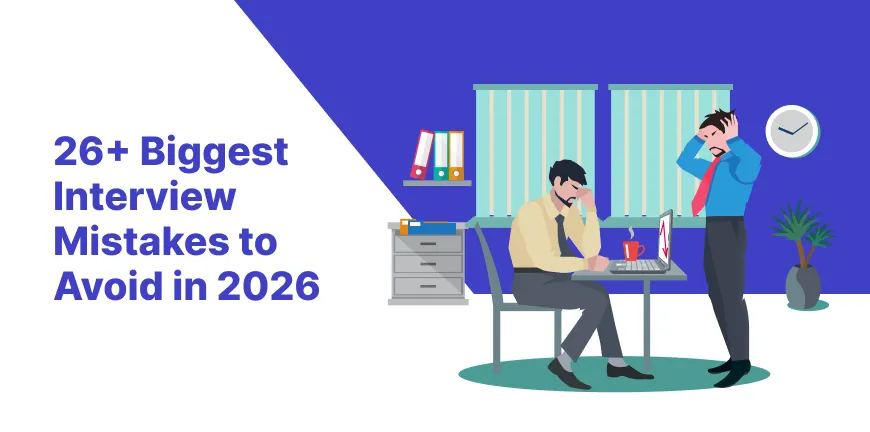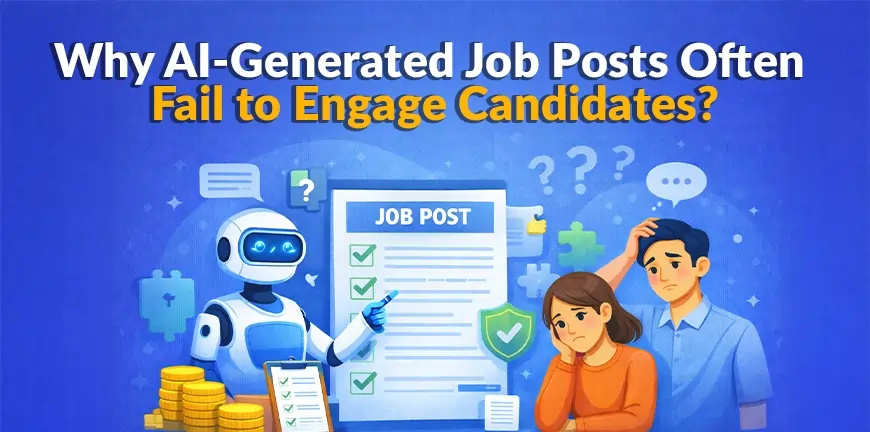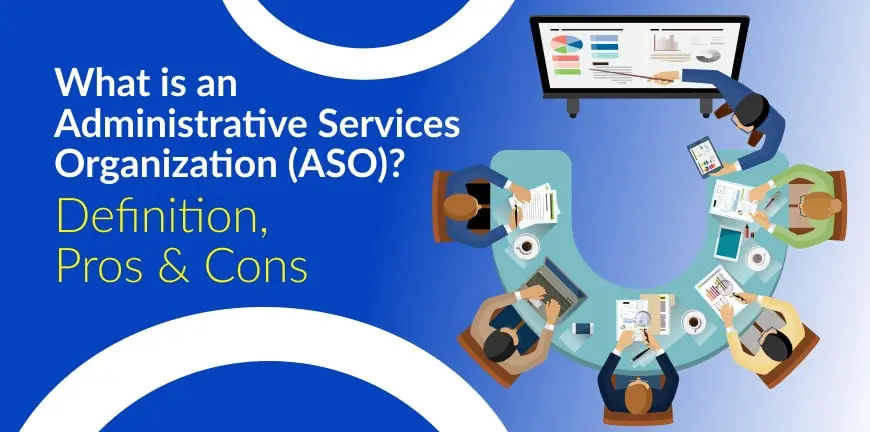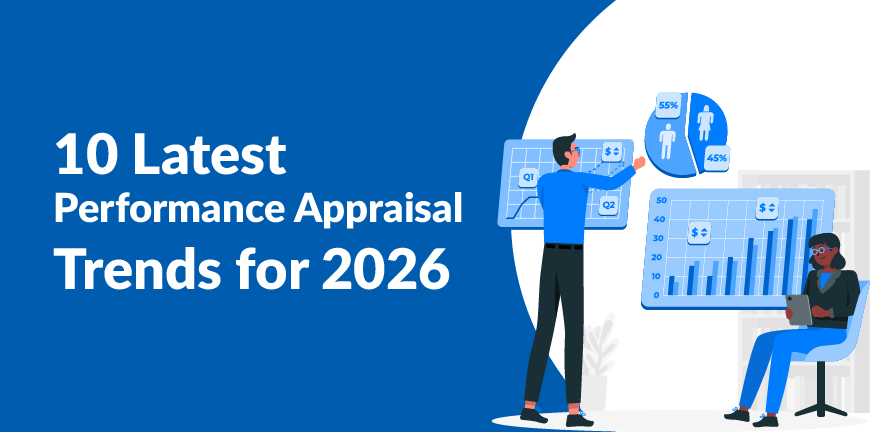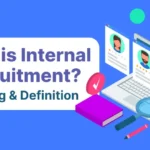
What is Internal Recruitment? Definition, Types, Advantages, Process
13/10/2025
Top 11 Leadership Skills to Master in 2026
13/10/2025You have made it past the first step post applying for a job, which is the resume selection process. The next part is where it gets real: the interview process. No matter how many interviews you may have attended, this process feels daunting every time. New interview, new fears. It may take many years of practice before this part gets easier for many of us. However, here is a guide that makes it easier to get past this process. Please read through our guide to understand how to avoid the biggest interview mistakes in your job interview.
Biggest Interview Mistakes to Avoid in 2026 and Tips to Avoid Them
1. Not being prepared
Going in for an interview without knowing anything about the company or the job role is not right. It will fail to put you in the good books of the interviewer. Interviewers can easily spot unprofessionalism and unpreparedness. You will be deemed an unfit candidate.
How to avoid?
READ UP BEFORE YOU COME IN TO THE INTERVIEW
Check out the company’s website. Read about their services, values, client reviews, mission, etc. Then, analyze the job you are applying for and have an idea about your responsibilities. When the interviewer asks you to give an example of how you have completed a certain task previously, you can answer them by keeping the relevance of the current job in mind.
2. Being late for the interview.
Showing up late anywhere is not right. And for an interview? Definitely not. This is your first display of commitment and discipline towards the job and organization.
How to avoid?
Gauge the time you require to travel and be at the interview venue. Leave a little early, just in case traffic gets you. Try to be there a few minutes early, so you can get a feel of the place and calm your nerves before the interview.
3. Arriving very early
Yes, you shouldn’t be late for an interview. But you don’t have to come in too early either. It may make you look desperate or even arrogant sometimes.
How to avoid?
Arrive at the venue 15 mins early. This timeframe makes sense if there are any security checks that you must go through. Earlier than this is overkill.
4. Not dressing appropriately
Do not show up looking dressed inappropriately. Not grooming yourself properly and looking messy is a very big turn-off.
How to avoid?
While getting ready, put yourself in the shoes of the interviewer and imagine how you would expect a candidate to show up and dress accordingly. Shower and look clean. Women must go easy on the makeup; men can shave and groom.
5. Having low energy
Not being enthusiastic and displaying low energy levels is not desirable. It can stifle your personality, style, and attitude.
Sitting in a crumbled position, speaking disinterestedly, and not paying attention to the interviewer are some of the things that may happen.
How to avoid?
Get a good night’s sleep. Get in a workout in the morning. It can help stimulate happy hormones. Have a healthy breakfast. Have a cup of coffee to feel energetic. Smile and have the right body language during the interview.
6. Having too much energy
Be excited for the interview, but don’t display too much excitement. It may come off as too desperate and can weaken your answers.
How to avoid?
Be calm and answer the questions you are asked enthusiastically. Stay composed. Be friendly, positive, and make the interviewer feel comfortable as well.
7. Using an undesirable tone of voice
Using a tone that isn’t suitable for the company or the position you are applying for. For example, if you are applying for a multinational company, you can’t open with a casual greeting. It must be formal.
How to avoid?
When the interview starts, listen to the HR and observe their tone. Are they very formal? Or casual or friendly? Go along with the same tone.
8. Not paying attention
Interviews may be longer at times. But if you suddenly zone out or are dozing off, your chances of being seen as a serious candidate get slimmer.
How to avoid?
Listen to the interviewer intently. If you are zoning out, snap back to the interview. Take a deep breath and clear your head. Remember, these couple of hours have the power to decide your future career step.
9. Not rehearsing answers for the common questions
All interviews will have some common questions. But thinking “ oh, that’s a common question, no need to prepare” is a mistake. How often have you answered perfectly to “ tell me about yourself or why do you want to work here?”
How to avoid?
Prepare. Jot down all the common interview questions that the interviewer may ask. Prepare answers for them. Rehearse the answers in front of a mirror. It helps you feel confident. You can even ask a friend to pretend to be the interviewer and have a mock session with them.
10. Being self-obsessed
Remember that the interview isn’t about you. It’s about how your skills can add value to your organization. So, don’t go on about yourself and bore the interviewer. Don’t just jump to talking about the salary you wish for and so on.
How to avoid?
Don’t brag. Be modest.
Yes, do talk about what you have accomplished, but make sure not to overdo it. However, if you have performed well in an area previously that is relevant to the job role you are applying for, then give the details.
11. Oversharing about personal life
When the interviewer gets casual with you to make you feel comfortable, at times, you may get carried away and start to overshare personal stuff. Don’t do that. Its ok for you to casually speak as well, but don’t get overwhelmed and start babbling.
How to avoid?
When you speak, look at how the interviewer is reacting to what you are saying. This will give you a clue as to whether what you are saying interests the interviewer or not. Reading reactions is very important.
12. Being too personal with the interviewer
You may have things in common with the interviewer, but don’t get too personal with them. Please do not get too casual and start behaving like they’re your friend and chit-chatting with them. Please don’t ask them about their personal life, etc.
How to avoid?
No matter how comfortable you get with the interview and the interviewer, remember you are in a job interview. Yes, you can respond to the interviewer about any personal questions they ask you, but don’t get carried away.
13. Fiddling with your phone
Do not walk in with a phone in your hand. While this may not seem like a big deal, it looks extremely unprofessional. It gives off the vibe that you aren’t very serious about work and are distracted.
How to avoid?
Either put it in your pocket or, better yet, in a bag or a handbag that you bought along with you. Make sure it’s on silent. You don’t want it ringing during the interview and distracting you.
14. Talking ill of your previous employers
Yes, your previous experience may not have been what you had hoped for. Your boss may not have been kind, or you may not have had supportive colleagues. But do not get carried away and share too much.
How to avoid?
When the interviewer asks about your experience or reasons as to why you left, don’t indulge too much. Keep it simple and impersonal. Instead, talk about why you want to join the current company.
15. Don’t say common sentences
Saying “I’m a confident person, I’m a critical thinker, I’m a good teammate, I can lead are some of the cliché sentences you must avoid. While some of it may be even true, avoid such sentences. Employers don’t trust it or take it seriously.
How to avoid?
If you do want to use them, support it with an example of what you have done previously to justify the sentence.
16. Talking too much and unnecessarily
Don’t talk too much. It says that you aren’t exactly well prepared for the interview and are trying to mask your unpreparedness with useless talk. Do not wander about the question when an interviewer asks for a simple answer.
How to avoid?
Give them clear answers. If they ask about your strengths, do not list your skills. Talk about how you have handled a difficult task in the past.
17. Wrong body language
Slouching or fiddling with your hands or being uncomfortable while talking to the interviewer is a turn-off. You may be confident inside, but your bad body language can negate that.
How to avoid?
The right posture is everything. Sit straight, don’t crouch. Make eye contact confidently, but don’t make it creepy. When you are answering them, look at them the entire time. Don’t take away your gaze.
Use your hands to express yourself only when necessary. Smile.
18. Bringing up salary negotiation too soon.
Yes, you must talk about your salary, but not at the beginning of the interview. If you start talking about your expectations way too early in the interview, it may seem like that’s all you care about.
How to avoid?
Talk about all things you could do to add value to the role, how you’ll be a great addition to the organization, etc. You may talk about salary negotiations when the hiring managers bring it up themselves. You can put across your points during the time to show why you are desirable and deserve more.
19. Not answering questions regarding salary properly
Don’t try to be too easy-going. Saying “I’m ok with the salary” is not at all an option. It makes you look inexperienced. And not giving any answer at all is even worse.
How to avoid?
Answer honestly and confidently about your expectations and why you deserve it. Use a desired range, so it gets easy to negotiate as per market standards.
20. Selling yourself too much
Yes, you may need or want this job desperately, but don’t oversell yourself. Trying to say too much about why you are right for the job isn’t required.
How to avoid?
Make sure to mention the best of your work till now. Definitely, do not leave out things that actually did matter and set you apart. More than talking, let the work you have done in the past speak for itself.
21. Not being able to sell yourself
Not being able to say anything to make yourself look like a desirable candidate is also not good. You must be humble but not dumb. Speaking nothing about yourself will make you seem underconfident.
How to avoid?
Tell about the qualities you have that have been of help in your previous employment. Mention how your skills helped solve a problem. Mention your truly worthy accomplishments.
22. Not being able to answer the weakness question
Most of you may think this is a trick question and tend to avoid it when asked. But it really isn’t. Saying I can work through anything won’t fly. The interviewer definitely won’t believe you because everyone has a drawback.
How to avoid?
Don’t think that saying what you are insufficient at will make you a less desirable candidate. Say what you actually lack in but are working on.
23. Not recovering from a mistake
Out of all the points we have mentioned above, there would be one or two points that you may have forgotten to follow. But that doesn’t mean you failed. Recovering is key. Learning from mistakes is what makes you different.
How to avoid?
Suppose you just realized you made a mistake when answering a question. Stop immediately. Gather yourself, recollect what you actually wanted to say, and start over again with a smile.
24. Not having any questions for the interviewer
At the end of the interview, when the interviewer asks Do you have any questions, don’t say, “Not really, I think you covered everything. You will be a pushover in the future. It also shows you don’t care so much about the details.
How to avoid?
Ask questions that will help you figure out more about your job role. This way, you’ll know the intensity of your responsibilities. So don’t ask about something too general. Don’t ask questions just to seem curious; these questions may seem vague.
25. Not asking what’s next
Did you not ask what you should do next after the interview is over? Oops. Do not sit there like you are lost and don’t know what to do next. Not asking about when they’ll have a reply for you about your interview will put your mind in chaos.
How to avoid?
Don’t just leave once the interview is done. You can just ask them, “When can I expect a reply? Or will there be another interview?
26. Not following up
Just sitting back and waiting for their reply for days at a stretch after the interview is over is a no-go. Chances are, you may seem disinterested and lose the job.
How to avoid?
Wait for a couple of hours after the interview and write them an email thanking them for the chance and their time.
Conclusion
The interview process can be an overwhelming, daunting experience overall.
There are so many things that can go wrong…but now you know all about them!
Remember all the different tips and solutions we provided in this article, and don’t forget to prepare!
FAQs- Frequently Asked Questions
1. What are the most common interview mistakes?
Being unprepared, not dressing properly, arriving late, speaking ill of previous employers, being too overconfident, and not asking any questions are some of the big mistakes.
2. What is the biggest mistake to avoid in an interview?
The biggest mistakes are not being prepared for the questions in the interview, dressing shabbily, and not having the right attitude.
3. What should you not say in an interview?
Negative about the previous employer, saying I don’t know, discussing too much about salary during the interview, I have no weaknesses, and I can work through all timelines.
4. What are red flags for interviewers?
Not speaking clearly and confidently, not knowing about the company or the role properly, and dressing inappropriately are big red flags.
5. What is the 1 thing you should not do in an interview?
The number one thing you should not do in an interview is arrive late, as it signals a lack of professionalism, discipline, and respect for the interviewer’s time, creating a negative first impression.
Contact Us For Business Enquiry

Rajkumar Shanmugam
Rajkumar Shanmugam is the Head of HR at ALP Consulting, bringing over 19 years of comprehensive HR leadership experience across India and international markets. His expertise spans talent acquisition, employee relations, performance management, compliance, and HR transformation. Rajkumar has a proven track record of driving people-centric initiatives, enhancing workplace culture, and aligning HR strategy with business goals. With extensive experience in US staffing operations and global mobility, he continues to lead organizational excellence through innovation and employee engagement.

